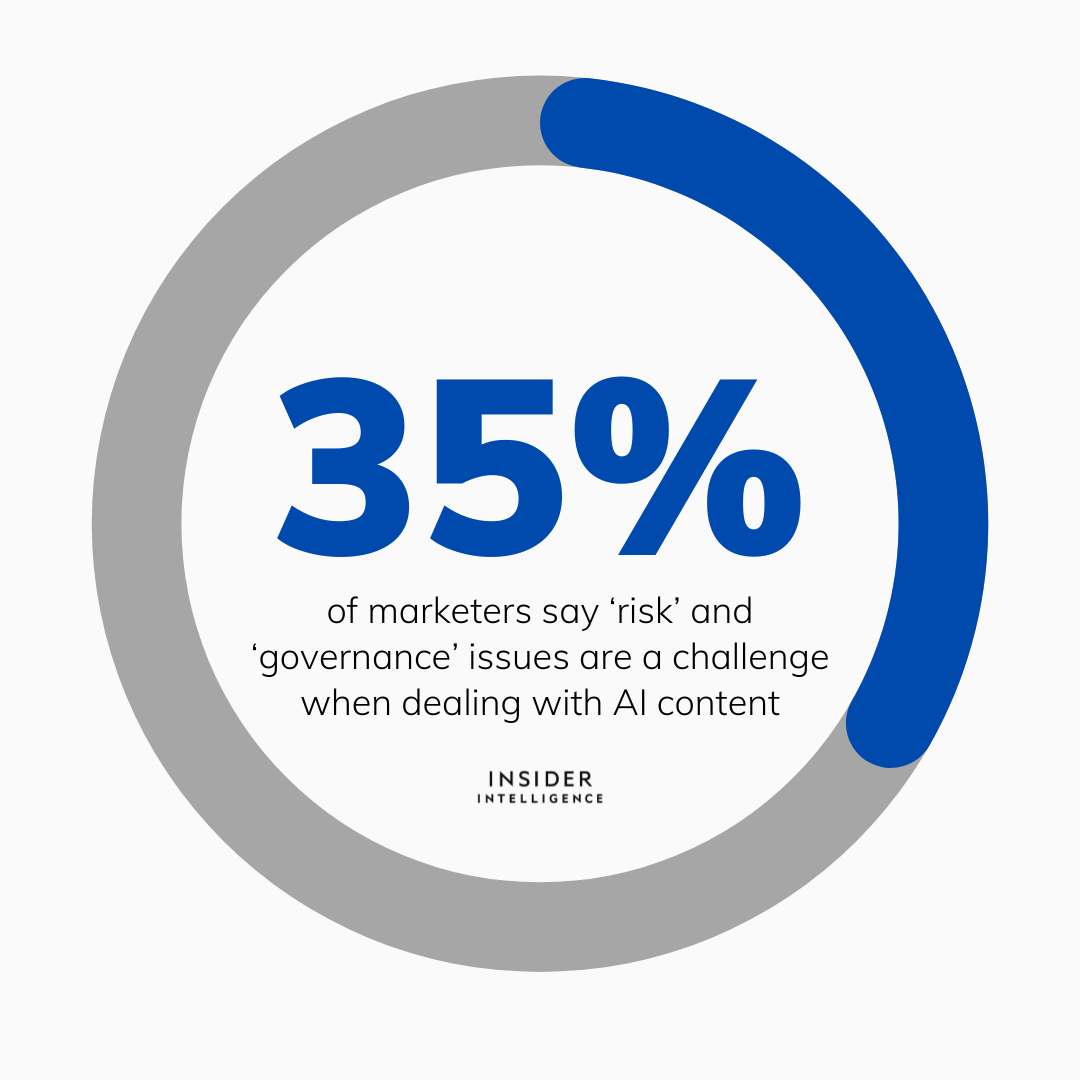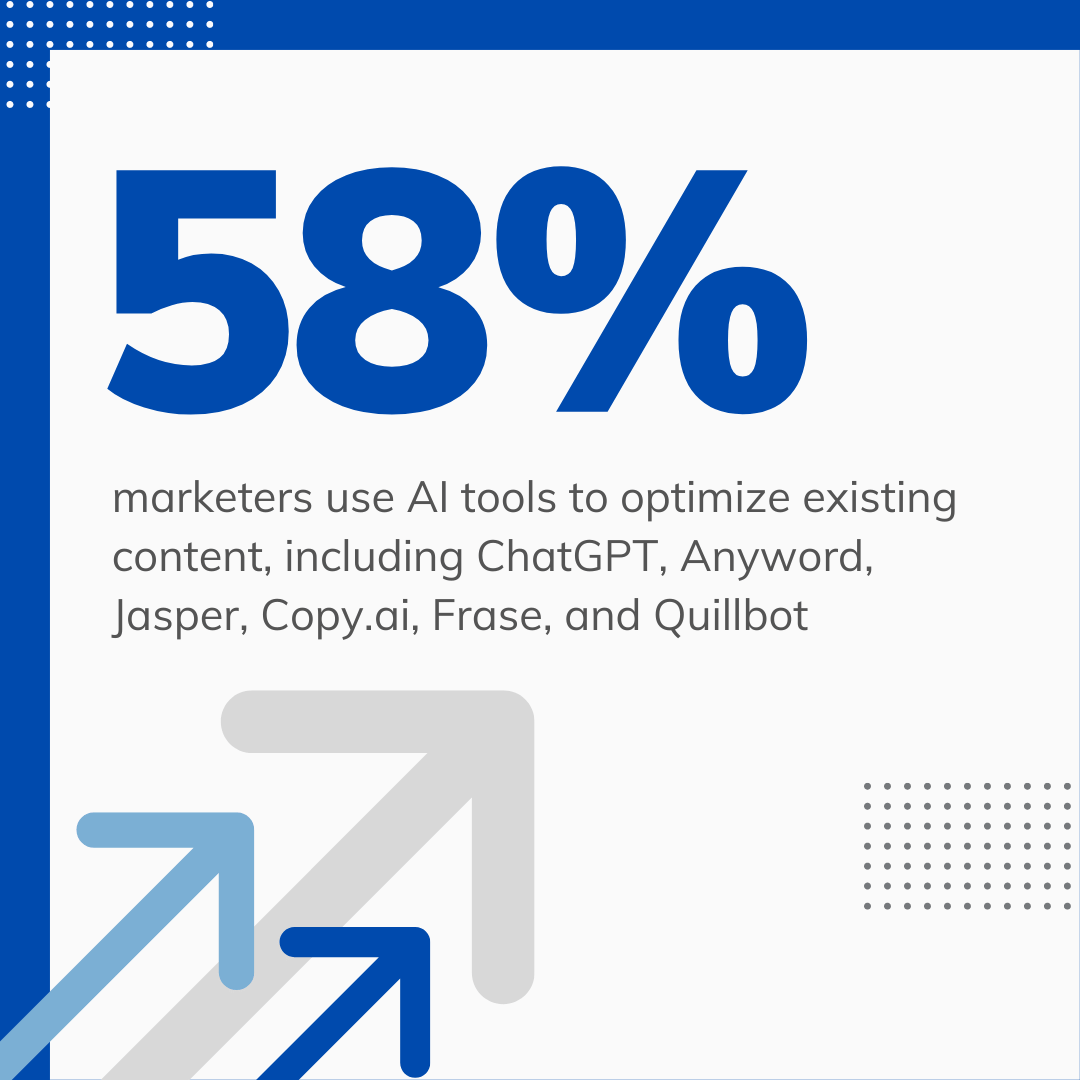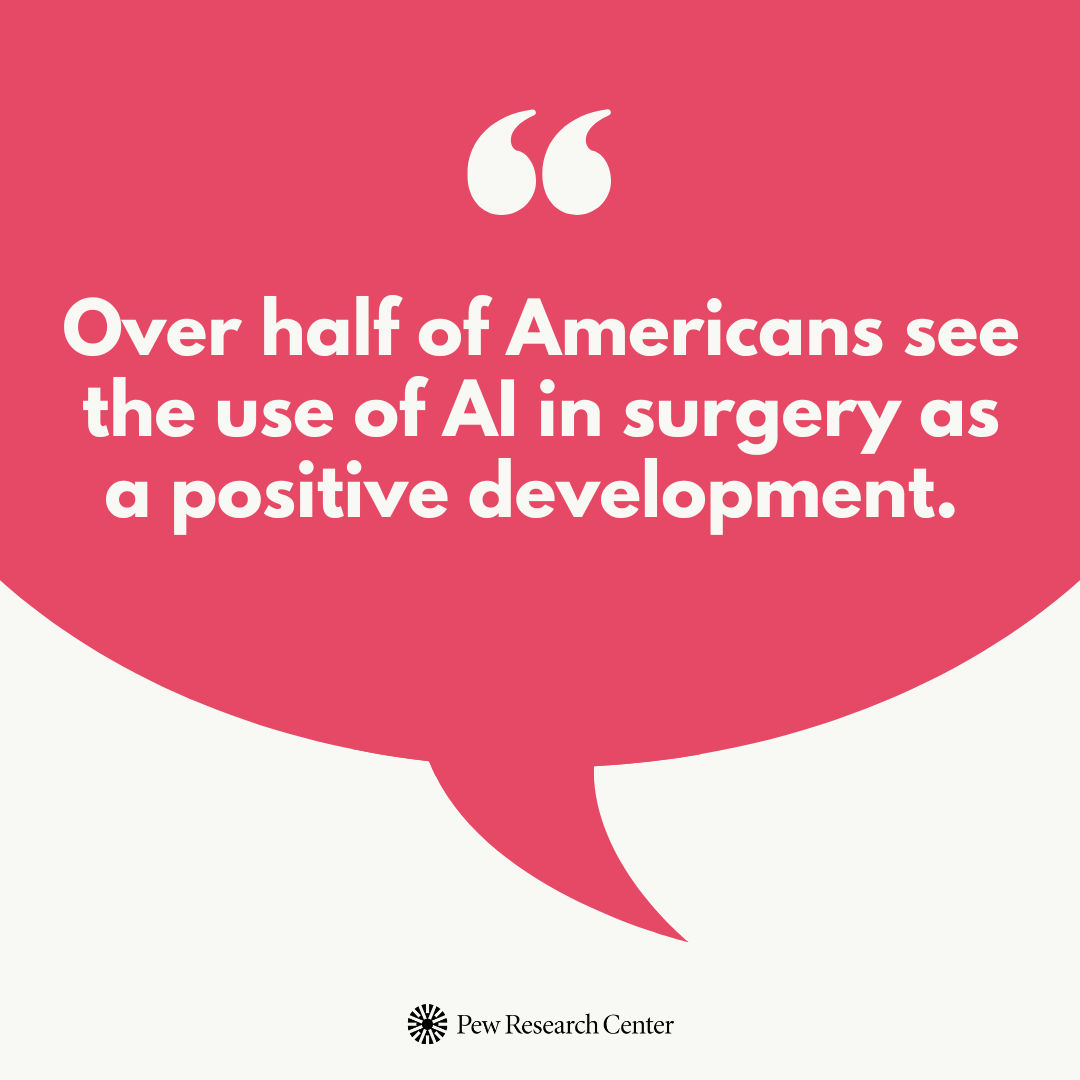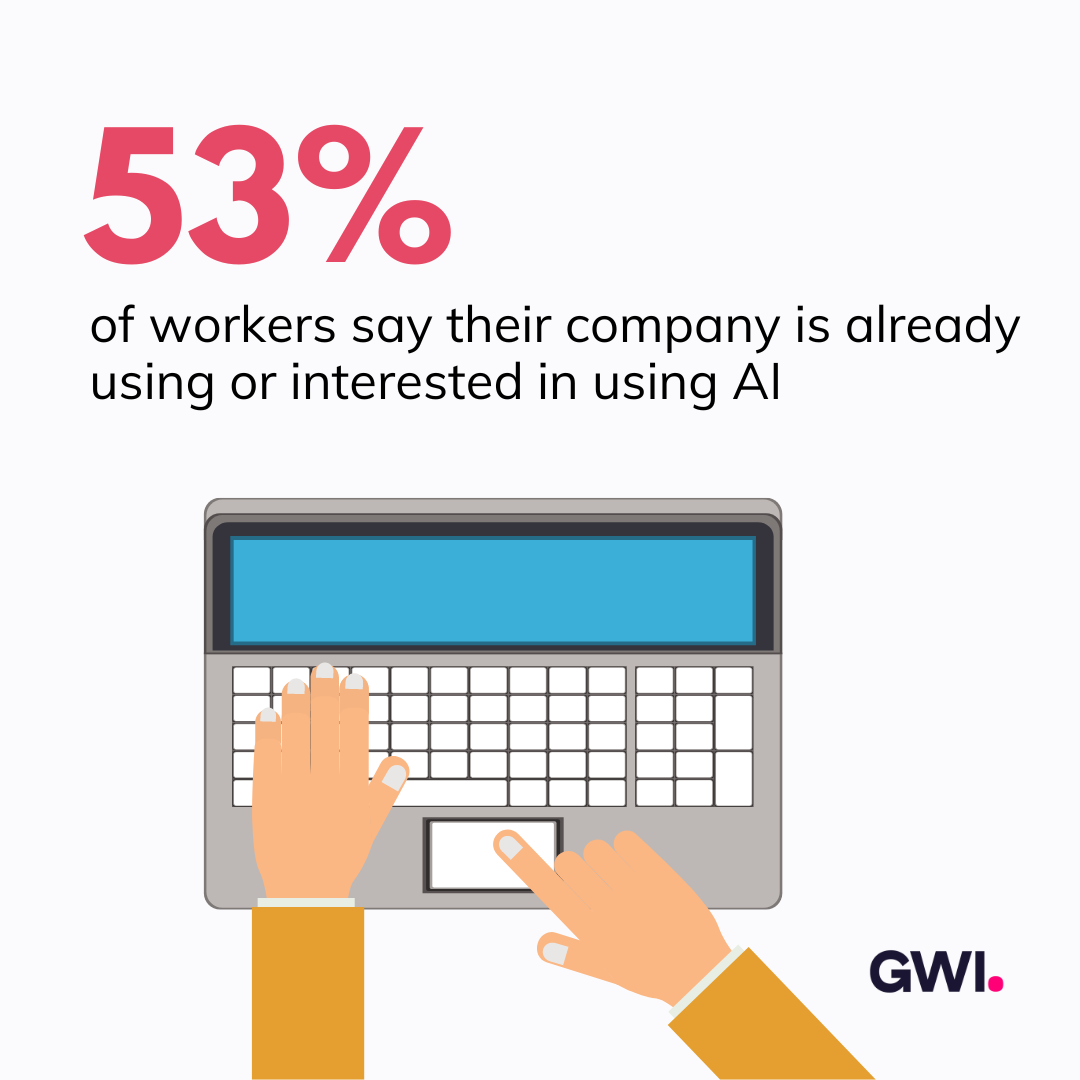Below is a curated list of Generative AI stats, reports, facts, and figures from media sources like Gartner, Insider Intelligence, Statista, and Pew Research. It will be updated as new Generative AI insights and research are released. Also included are specific ChatGPT statistics. [Updated: June 5th, 2023]
Generative AI Stats & Figures

- Of US adults who strongly trust generative AI, 60% are men, and 40% are women. They are usually millennials and have not completed college (Source)
- 49% of US adults are interested in AI-powered search (Source)
- 31% of US adults distrust AI-driven search results (Source)
- 63% of business decision-makers plan to increase or maintain AI spending despite current economic conditions (Source)
- 61% of respondents (Global Audience) do not trust AI systems (Source)
- Security researchers from Darktrace have seen a 135% increase in social engineering attack emails in the first two months of 2023 (Source)
- 82% of workers are worried about hackers using generative AI to create scam emails (Source)
- Of Americans aware of AI-generated news articles like those from ChatGPT, 16% see it as a major advance, 28% as minor, and 45% don’t consider it an advance at all (Source)
- Of those familiar with AI image generation like DALL-E 2, 31% view it as a major advance in visual arts, while 39% see it as minor (Source)
- VC firms invested $1.7B+ in generative AI over three years, with AI drug discovery & software coding receiving the most funding (Source)
- By 2025, over 30% of newly discovered drugs and materials will be created using generative AI techniques, up from zero currently. Early AI models like ChatGPT are designed to enhance creative work (Source)
- In 2025, AI generation will account for 30% of large organizations’ outbound marketing messages, compared to less than 2% in 2022 (Source)
- It is projected that in 2030, a major blockbuster film will be released, wherein 90% of the movie will be generated by AI – an increase from 0% in 2022 (Source)
- 7% of jobs in the US may be replaced by AI, while 63% will be enhanced by AI, and 30% will remain unaffected (Source)
- From 2018 to 2022, natural language interfaces and 2D-media generation were the top applied segments in Generative AI, capturing 29.3% and 18.8% of VC-backed deals and 23.6% and 11.4% of total invested dollars (Source)
- 35% of marketers say ‘risk’ and ‘governance’ issues are a challenge when dealing with AI content (Source)
- 56% of US adults believe that AI-generated content may contain bias or inaccuracies (Source)
- 62% of US adults say that using AI in the workplace can save time and resources (Source)
- 47% of US adults say that AI should replace redundant tasks at work to increase efficiencies and productivity (Source)
- 43% of US adult workers believe that AI-generated written content can be just as good as something written by a human (Source)
Generative AI Use Cases for Marketers

- 58.9% of marketers use AI tools to optimize existing content, including ChatGPT, Anyword, Jasper, Copy.ai, Frase, and Quillbot (Source)
- 57.1% of marketers use AI tools to write long-form content (blogs, white papers, and eBooks) (Source)
- 55.4% of marketers use AI tools to write short-form content for social media, product descriptions (Source)
- 48.2% of marketers are using Generative AI tools to brainstorm topics for future content (Source)
- 46.4% of marketers are using Generative AI to write headlines for long content (Source)
- 44.5% of marketers are using Generative AI for keyword research (Source)
- 88% of marketers say that using Generative AI saves their company time and money (Source)
- 88% of marketers say that AI content is good or better than human content (Source)
Generative AI for Science, Medicine and Mental Health

- Of those aware of AI-assisted surgery, 56% consider it a major medical advance, 22% a minor one, and only 5% don’t see it as an advance (Source)
- People familiar with AI-based skin cancer detection generally react positively, with 52% seeing it as a major medical advance and 27% as a minor one (Source)
- Compared to other applications, fewer Americans view AI-assisted pain medication decisions as a major advance (30%), while 37% see it as a minor one (Source)
- Among US adults aware of mental health chatbots, 19% consider it a major advance, 36% a minor one, and 25% don’t see it as an advance (Source)
ChatGPT Statistics and Figures

- 53% of workers say their company is already using or interested in using ChatGPT (Source)
- 16% of consumers use ChatGPT, and 59% are interested in using the tool (Source)
- 35% of consumers have never heard of ChatGPT (Source)
- 86% of ChatGPT users find it helpful and are applying it to a wide range of use cases (Source)
- The top 5 industries using ChatGPT are Telecom, Software Development, Insurance, Engineering, and Management Consulting (Source)
- 68% of users are using ChatGPT instead of search engines to answer questions (Source)
- 63% of ChatGPT users believe that advancements in AI tools will help improve the workplace (Source)
- 50% of ChatGPT users are concerned about how AI tools will impact the creative industry (Source)
- 46% of ChatGPT users are worried about AI bias (Source)
- 50% of users would pay for the premium version of ChatGPT (Source)
FAQ
Q. What is Generative AI?
A. Think of Generative AI as a specific field within artificial intelligence dedicated to crafting new content – text, images, even music – all by learning from existing data. It employs deep learning algorithms and neural networks, allowing for unique, human-like results.
Q. What is the function of Generative AI?
A. Generative AI learns patterns, structures, and data relationships by training on comprehensive datasets. Post-training, these AI models predict the next element from the provided input, leading to the creation of new content. The process repeats, constantly refining the result until it fulfills the desired criteria.
Q. Identify common uses for Generative AI.
A. Generative AI finds utility in numerous areas, from content creation (e.g., article writing or image generation) to personalization (e.g., crafting customized marketing messages). It even assists in product design, aiding in developing innovative concepts. Moreover, it finds application in drug discovery, where AI aids in creating new compounds for trials.
Q. Describe the advantages of employing Generative AI in marketing.
A. Employing Generative AI in marketing paves the way for personalized, engaging content, enhancing targeting and customer experience. It brings automation to content generation, liberating resources and time to focus on strategy and implementation. Further, it unveils fresh opportunities and trends through extensive dataset analysis, providing valuable insights.
Q. What are potential limitations or hurdles in using Generative AI?
A. Generative AI does present particular challenges despite its benefits. Creating resonating, premium content for the target audience can be challenging. Ethical issues around AI-generated content, including potential misinformation or manipulation risks, exist. Moreover, managing AI models demands considerable computational power and expertise, adding to resource needs.
Q. How can responsible use of Generative AI be ensured in marketing?
A. For responsible use of Generative AI in marketing, laying out clear guidelines and ethical standards for application is crucial. Practices should include transparency when utilizing AI-generated content, data privacy assurance, and stringent content quality and accuracy monitoring. Keeping abreast of the latest AI developments and seeking expert collaboration contribute to this technology’s responsible, practical use.
